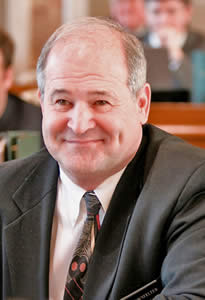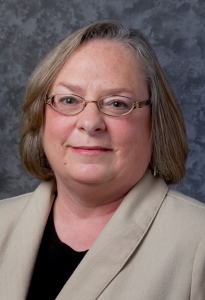Window on the West
by Mary Rupert
Mayor Mark Holland gave his state of the Unified Government speech earlier this week, and readers of this column will note that some, but not all, of the same information about economic development was in a column two weeks ago, when the mayor spoke at the Leavenworth Road Association meeting.
That column is at https://wyandotteonline.com/questions-and-answers-about-economic-development-projects-in-kansas-city-kan/.
What intrigues me is whether the Krispy Kreme grand opening at Wyandotte Plaza, just a couple hours before the mayor’s speech Tuesday, grabbed the attention away from the mayor’s day?
The mayor was not able to attend the grand opening that day because of his speech scheduled that morning, and he visited the new store at Wyandotte Plaza for an employee event the weekend before, according to the local Krispy Kreme communications officer. The company had rescheduled the grand opening two times because of delays and was finally ready to go on Tuesday, according to the spokesman. The store opening made national news, as it was the company’s 1,000th store opening.
Republicans including Kansas Secretary of State Kris Kobach and Lt. Gov. Jeff Colyer were on hand at the doughnut shop event to welcome the new store.
The mayor made a big media swing, appearing on broadcast news programs and talk shows the next day in order to get his state of the UG economic development message out.
I’m not really sure how the doughnut store opening fits with the UG’s healthy communities plan, but maybe a walking trail is needed at Wyandotte Plaza now.
It’s difficult being an unaffiliated candidate in Wyandotte County
Janice Grant Witt, a candidate for the Unified Government, 1st District at large, said she doesn’t expect to win but she is sometimes having an opportunity to get her message out during this campaign.
However, no unaffiliated candidates were allowed to speak at the Wyandotte County Third Saturday Democratic breakfast last weekend at Kansas City Kansas Community College. Witt said she was not asking to speak, but said she was questioned about whether she was really a Republican at that meeting. She said she is unaffiliated. Only Democratic candidates were allowed to speak at the meeting, and only those who were Democrats and unaffiliated could attend. Witt felt she was being questioned about her party in an attempt to remove her from the room. She was told she could not pass out her campaign information, too.
Witt said her husband, currently a Democrat, now is thinking of switching to unaffiliated status.
In past years some candidates have told us that it’s more fun to be the underdog, and then you can criticize the powers that be. Witt’s “tell it like it is” campaign included lots of criticisms at the forum held at the John F. Kennedy Community Center. But at the Armourdale forum held on Wednesday night, Witt left all her campaign speech behind and instead talked just about her efforts to help the homeless on that very cold night, and also about the Reola Grant Civitan Center, which she founded, at Victory Dodge on State Avenue.
The Armourdale forum has a policy of “no candidate bashing” and no debating, so it was quite a bit tamer than some other events held earlier this month.
On Saturday, Witt said she felt that she has a right to attend the Democrats’ meeting, as the meeting notice said unaffiliated voters could attend.
Access is an interesting thing. In general, people do not have access to a private organization’s meeting, unless invited or unless it is open to the public, while they do have access to government-sponsored public events. In general, they also have access to the places open to the public in public buildings – not necessarily to individual rooms in the building. Witt expressed the thought that she was in a public building and had the right to be there.
Legalities of access aside, however, many organizations have changed their approach to membership in recent years. That’s because a lot of the younger generation has expressed a fear of long-term commitment to membership. Organizations instead are holding single-day or weekend events to draw in the younger generation, which is membership-shy. I doubt that the organizations will get a lot of new members by double-checking individuals’ membership at meetings. Access and membership are some interesting issues that the political parties have to face in the future.
I enjoyed attending some of the forums, but my own experience was that the Democrats were the best at getting out information in advance about their candidate forum last Saturday morning, better than the other local groups that had forums. The Democrats sent out several email blasts about their upcoming event.
Is it Village East or Village West?
The name “Village East” appeared in some media reports again recently concerning the 98th and State Avenue Schlitterbahn area being developed for the Dairy Farmers of America headquarters.
I did not see the Village East name used again in the current UG documents or at the meetings, but only in some other media reports. The Village East name had surfaced on some documents when the first public announcement was made of the U.S. Soccer training facility near Schlitterbahn, but officials later said it would not be used for that area again.
That use of the name “Village East” is something State Sen. David Haley, D-4th Dist., doesn’t like to see, since he has the rights to the name “Village East.” And in Sen. Haley’s opinion, Village East will be east of I-635, some day.
To reach Mary Rupert, editor, email [email protected].


